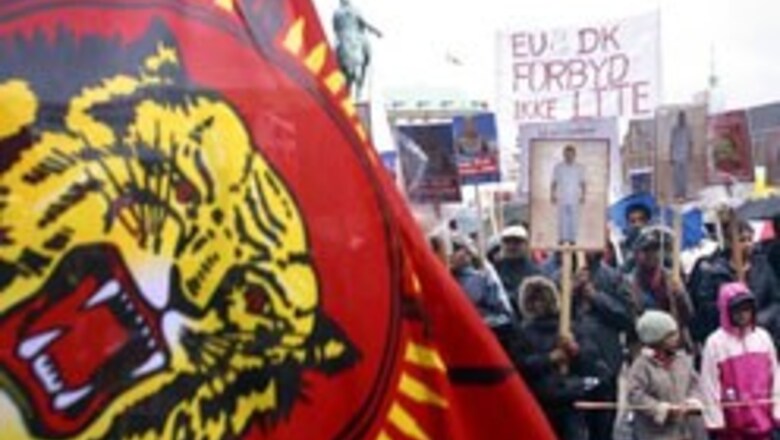
views
Colombo: On Tuesday, Sri Lanka welcomed a European Union (EU) ban against the island's Tamil Tiger rebels.
Sri Lanka hopes that the ban which would freeze the rebels' assets would convince them to resume peace talks.
Diplomats in Brussels said the 25-nation bloc listed the Liberation Tigers of Tamil Eelam (LTTE) as a banned terrorist organisation amid a sharp escalation in attacks and clashes with Sri Lanka's military.
The Tigers had no immediate comment, but they have previously said that proscription would deter them from returning to talks aimed at permanently halting a two-decade civil war and would "exacerbate the conditions of war".
"We are hopeful that this ban would persuade the Tamil Tigers to come in and talk to the Government," Senior Presidential Aide, Ajith Nivard Cabraal said. "It gives them a space to get back to the table."
"The Tigers are getting more and more isolated, which means the Tigers have to understand that the only reasonable, legitimate course of action that they have is to talk to the Government and resolve this," he added.
The ban is a diplomatic slap in the face for the rebels, who have sought to project an image abroad as viable leaders of a de facto state they want recognised as a separate homeland for ethnic Tamils in the island's north and east.
The United States, Britain, Canada and India have already outlawed the Tigers.
Analysts say EU freeze on assets would hurt the war chest of the Tigers, who have used past trips to Europe during peace talks to raise funds from expatriate Tamils.
"One of the main ingredients of any activity of a terrorist group would be the money that they have, and if that dries up, it is going to hamper that work," Cabraal said. "Hopefully that would act as a deterrent."



















Comments
0 comment